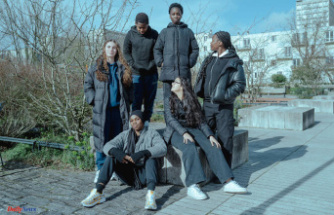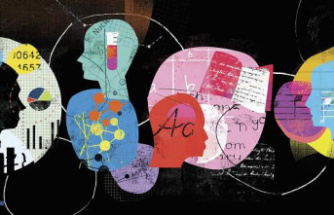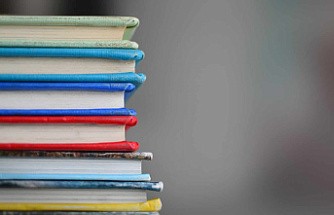Lesbians perform worse than straight women on a variety of academic measures.
Larry Kramer, activist and playwright, declared that he loves gay people at the beginning of a speech in New York City in 2004. "
A new study gaining attention among LGBTQ-focused academics gives empirical support to Act Up's prideful claims. This is not to assert that gay men are superior, but rather that they are remarkably more inclined to excel academically.
However, the paper published by the American Sociological Review February 20 draws starkly opposed conclusions about how growing-up gay can affect academic performance.
Joel Mittleman is a University of Notre Dame sociologist. He was the paper's sole writer. He found that gay men perform worse in school and that Black lesbians graduate at a lower rate than their white counterparts.
Lisa Diamond, a University of Utah psychology professor, stated that this article "focuses a lens onto what we do for all kids" about the social pressures that seem to hinder lesbians from attending school, even though these stressors may unnerve gay men into making academic efforts to compensate for homophobia. "
According to the National Student Clearinghouse, 59% of college students are women.
Mittleman's research shows that the description of the educational gender gap in the United States is largely based on the assumption that only straight men are affected by the scholastic morass. The heterosexuals have made significant academic progress since the introduction of second-wave feminists.
Adding sexuality questions to surveys
Mittleman was able reach his remarkable research findings because of a decision by President Barack Obama to include questions about sexual orientation in a trio federally funded surveys. This move provided information on nearly half a billion Americans' diplomas.
Also, the National Center for Education Statistics' High School Longitudinal Survey asked questions about sexuality to its cohort between 2009 and 2017. Mittleman compiled a wealth of data, including transcripts from 15,270 high school students.
According to three American adult surveys, gay men are more likely than straight men that they have graduated from college or high school. About one-third of straight women have a bachelor's degree.
A longitudinal survey revealed that gay men had higher GPAs than their straight male peers. Lesbians were more likely to report at least one period of dropping out than heterosexual women.
The U.S. Lesbian population's college graduation rate is significantly higher than the national average for straight women. However, Mittleman discovered that this advantage was largely limited to lesbians of color and that gay women have lost their educational edge.
Girls have historically received higher grades than boys. However, social constraints that imposed limits on women's potential over the past 50 years have allowed for a rise in straight women's college graduation rates to be statistically comparable with lesbians.
Nancy Drew effect
To find out the causes of these disparities in school performance, Mittleman used machine-learning algorithms to determine survey response patterns that predicted that respondents would be male or female. This helped to explain at least some of the variation in GPA between gay and straight students.
This suggests that sexual orientation and its intersection with gender affectation may have had an impact on how successful lesbian and gay students in school.
Mittleman sought to understand the sociocultural dynamics that might be at play in these complicated equations. He pointed to the feminine archetype in his paper, which has been a long-cherished ideal in white middle-American culture of the diligent student. )
Mittleman described masculinity as fragile and insecure, and argued that many American boys are driven by a desire to assert their masculinity through differentiating themselves with the good-girl archetype.
However, Gay boys seem willing, even eager, to ignore gender norms in academics.
John Pachankis , Yale School of Public Health psychologist, said that the gay men will benefit from the fact that validation is feminine-oriented.
The flip side is that young lesbians might not identify with the femininity inherent to the good-student model. This could be especially true for Black girls who, according to past research, are stereotyped as masculine by white authority figures.
Mittleman stated that girls who present themselves as men are considered troublemakers and suspicious.
The Best Little Boy in the World' phenomenon
Another factor that Mittleman claimed drives gay boys to outperform straight girls academically is what is known in queer psychology to be the "Best Little Boy in the World." Tobias' memoir, which was published in 1973, describes his youth struggle to overcome his homophobia and gain admission to Harvard University.
A 2013 paper by Mark Hatzenbuehler and Pachankis, found evidence that suggests gay college students sought to overcome anti-gay stigma through academic success.
This psychological paradigm is also the foundation of "The Velvet Rage," Alan Downs' bible for queer men. It was published in 2005 and focuses on "overcoming the pain that comes with growing up gay in a straight-man's world." "
Although Mittleman is straight, Mittleman said that he was bullied for not being enough masculine as a child. His brother, Dr. Chris Remishofsky is gay. He said that the findings in Mittleman's paper closely mirror his own personal experience.
Remishofsky, a Sterling Heights dermatologist, said that he was determined from a young age to become a doctor to prove to everyone that he could succeed, even though he was gay. "
A Brookings Institution Hamilton Project analysis that was published in January showed that gay men earn $30,000 more per year than lesbians.
Ilan Meyer, a UCLA researcher, was intrigued by the story Mittleman told of gay men overcoming great odds. Meyer also pointed out the Centers for Disease Control and Prevention Youth Risk Behavior Surveillance reports, which have documented the many stressors that lesbian, gay and bisexual young people experience in school and the numerous adverse effects, including depression and suicide.
In fact, Mittleman found out that lesbian, gay, and bisexual youth felt more at risk in school than their straight peers and were subject to greater discrimination and what's called minority stress.
Meyer stated that the resilience of gay boys to overcome all stressors effectively is amazing. "
What does a queer youth have to pay
Brian Mustanski is a Northwestern University professor in medical social sciences. He cautions that gay men's relative success could be a double-edged sword.
He said that while it was good news for young gay men to be able to do well academically, he had concerns about the pressure they are putting on themselves.
This suggests that academic striving for validation can lead to a high cost to mental health and physical well-being. Mustanski cited his research which showed that homosexual men are more likely to have chronic inflammation than other people.
Kirsty Clark, a Vanderbilt University psychiatric epidemiologist, spoke out about the dire situation of young lesbians. She said that there is "strong support" for Mittleman’s hypothesis that students are subject to academic penalties for violating gender norms.
Clark stated that school policies must be inclusive and safe to protect students from bullying and discrimination by school staff, regardless of their sexual orientation or gender expression. "
Clark also called for the reform of zero tolerance school discipline policies. These policies adversely affect members of minority groups, like lesbians of colour.
While praising the "beautifully conducted study", the UCLA psychologist Patrick Wilson expressed concern that the public might be able to see student-achievement trends from a wider perspective due to Mittleman's findings.
Noting what an overwhelmingly unsafe place school still is for many queer kids, Wilson further cautioned the public not to conclude, for example, "that a poor Black gay boy living in Montgomery or Mobile, Alabama, feminine-presenting and gender-nonconforming, is actually succeeding in high school right now. "












